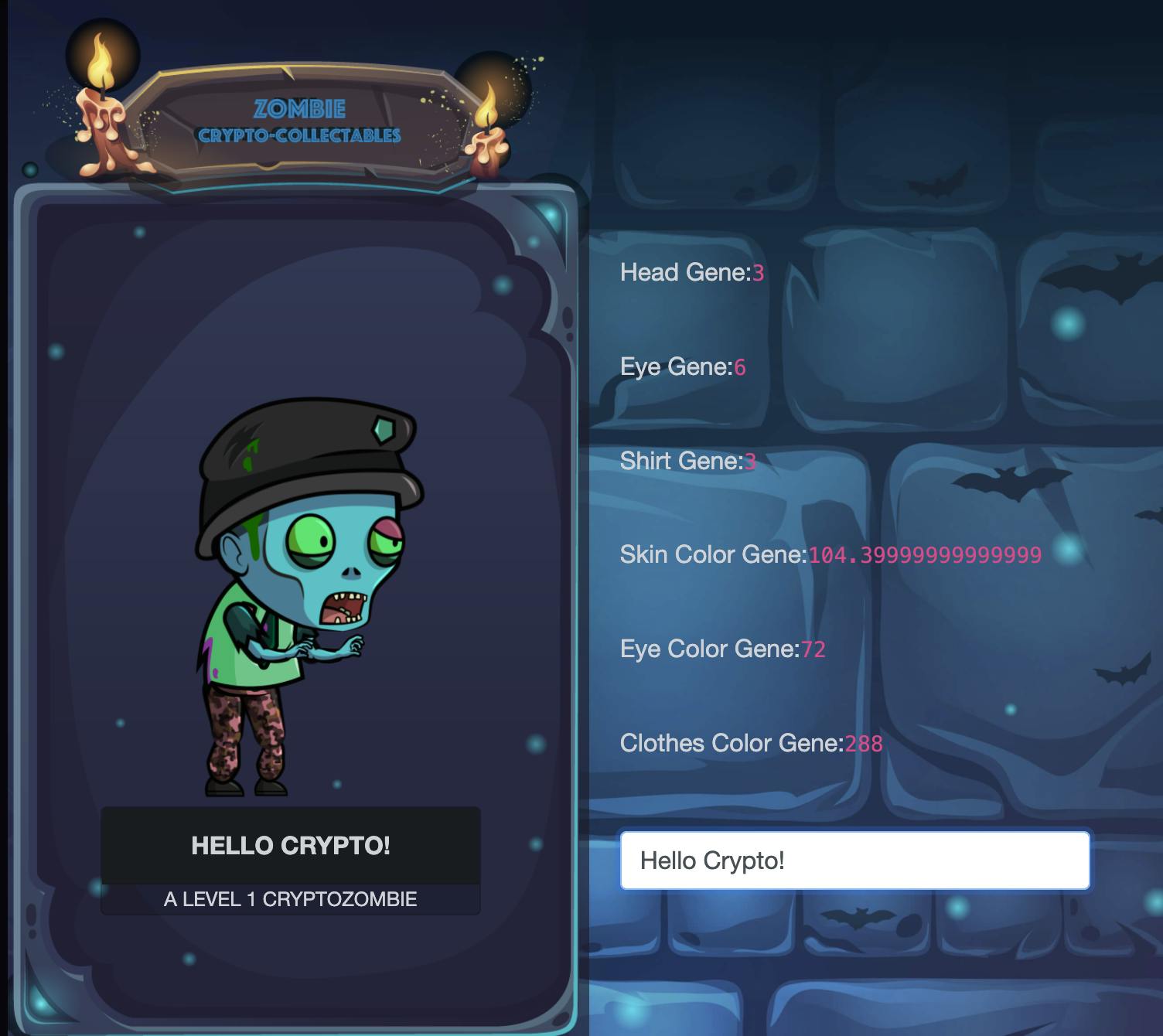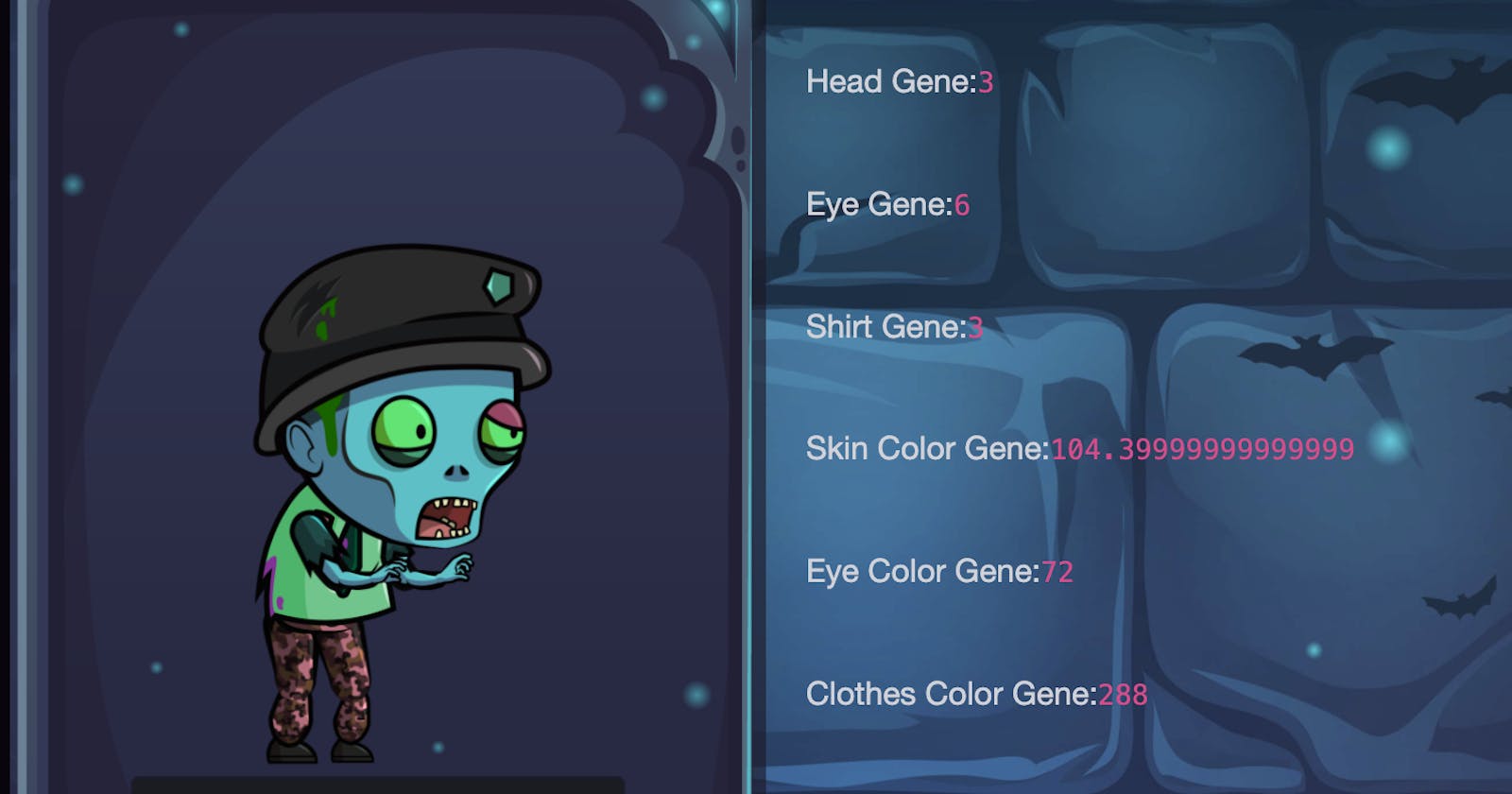- Short Note: My first encounter with CryptoZombies was actually several years back. But I took a different career path. And here I am again!
- Purpose: Refresh myself with Solidity basics. Dev-logging so that I can check back anytime.
Contracts
pragma solidity >=0.5.0 <0.6.0;
contract ZombieFactory {
}
State Variables & Integers
pragma solidity >=0.5.0 <0.6.0;
contract ZombieFactory {
uint dnaDigits = 16;
}
Structs
pragma solidity >=0.5.0 <0.6.0;
contract ZombieFactory {
uint dnaDigits = 16;
uint dnaModulus = 10 ** dnaDigits;
struct Zombie {
string name;
uint dna;
}
}
Arrays
pragma solidity >=0.5.0 <0.6.0;
contract ZombieFactory {
uint dnaDigits = 16;
uint dnaModulus = 10 ** dnaDigits;
struct Zombie {
string name;
uint dna;
}
Zombie[] public zombies;
}
Function Declarations
pragma solidity >=0.5.0 <0.6.0;
contract ZombieFactory {
uint dnaDigits = 16;
uint dnaModulus = 10 ** dnaDigits;
struct Zombie {
string name;
uint dna;
}
Zombie[] public zombies;
function createZombie(string memory _name, uint _dna) public {
}
}
Structs & Arrays
pragma solidity >=0.5.0 <0.6.0;
contract ZombieFactory {
uint dnaDigits = 16;
uint dnaModulus = 10 ** dnaDigits;
struct Zombie {
string name;
uint dna;
}
Zombie[] public zombies;
function createZombie (string memory _name, uint _dna) public {
zombies.push(Zombie(_name, _dna));
}
}
Private / Public Functions
~~~
function _createZombie(string memory _name, uint _dna) private {
zombies.push(Zombie(_name, _dna));
}
Return Values, Modifiers in Functions
~~~
function _generateRandomDna (string memory _str) private view returns (uint) {
}
Keccak256 and Typecasting
/*
Keccak256 and Typecasting
> keccak expects single param type of 'bytes' => pack params before calling keccak256
> > ex) keccak256(abi.encodePacked("aaaab"));
> typecast to store result in the form wanted
~~~
function _generateRandomDna(string memory _str) private view returns (uint) {
uint rand = uint(keccak256(abi.encodePacked(_str)));
return rand % dnaModulus;
}
*/
~~~
function createRandomZombie(string memory _name) public {
uint randDna = _generateRandomDna(_name);
_createZombie(_name, randDna);
}
Events
pragma solidity >=0.5.0 <0.6.0;
contract ZombieFactory {
event NewZombie(uint zombieId, string name, uint dna);
uint dnaDigits = 16;
uint dnaModulus = 10 ** dnaDigits;
struct Zombie {
string name;
uint dna;
}
Zombie[] public zombies;
function _createZombie(string memory _name, uint _dna) private {
uint id = zombies.push(Zombie(_name, _dna)) - 1;
emit NewZombie(id, _name, _dna);
}
function _generateRandomDna(string memory _str) private view returns (uint) {
uint rand = uint(keccak256(abi.encodePacked(_str)));
return rand % dnaModulus;
}
function createRandomZombie(string memory _name) public {
uint randDna = _generateRandomDna(_name);
_createZombie(_name, randDna);
}
}
Web.js Sample
var abi =
var ZombieFactoryContract = web3.eth.contract(abi)
var contractAddress =
var ZombieFactory = ZombieFactoryContract.at(contractAddress)
$("#ourButton").click(function(e) {
var name = $("#nameInput").val()
ZombieFactory.createRandomZombie(name)
})
var event = ZombieFactory.NewZombie(function(error, result) {
if (error) return
generateZombie(result.zombieId, result.name, result.dna)
})
function generateZombie(id, name, dna) {
let dnaStr = String(dna)
while (dnaStr.length < 16)
dnaStr = "0" + dnaStr
let zombieDetails = {
headChoice: dnaStr.substring(0, 2) % 7 + 1,
eyeChoice: dnaStr.substring(2, 4) % 11 + 1,
shirtChoice: dnaStr.substring(4, 6) % 6 + 1,
skinColorChoice: parseInt(dnaStr.substring(6, 8) / 100 * 360),
eyeColorChoice: parseInt(dnaStr.substring(8, 10) / 100 * 360),
clothesColorChoice: parseInt(dnaStr.substring(10, 12) / 100 * 360),
zombieName: name,
zombieDescription: "A Level 1 CryptoZombie",
}
return zombieDetails
}
End of Lesson 1
 share.cryptozombies.io/en/lesson/1/share/He..
share.cryptozombies.io/en/lesson/1/share/He..


